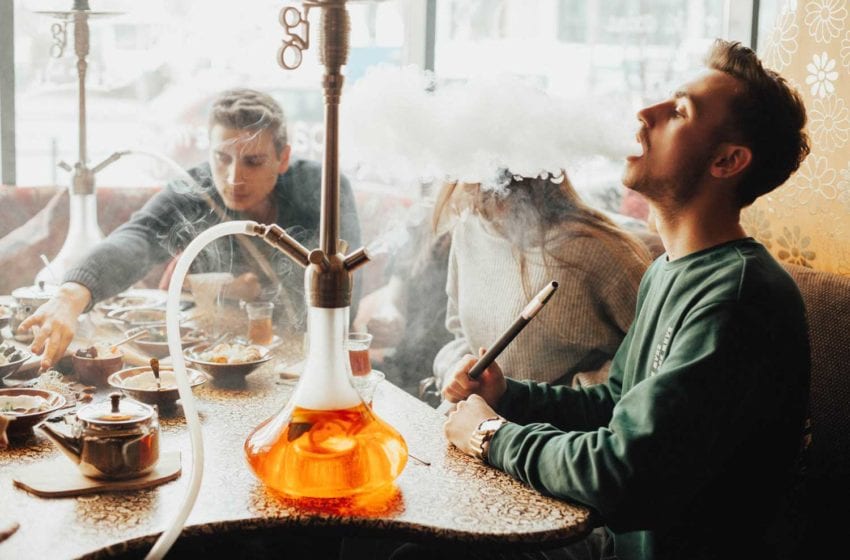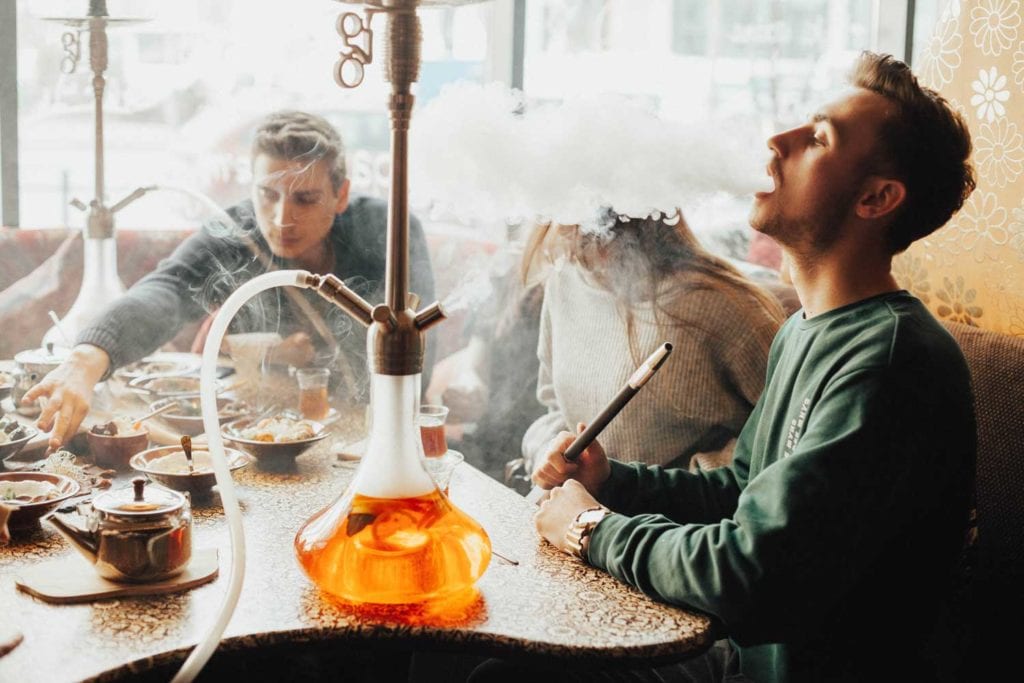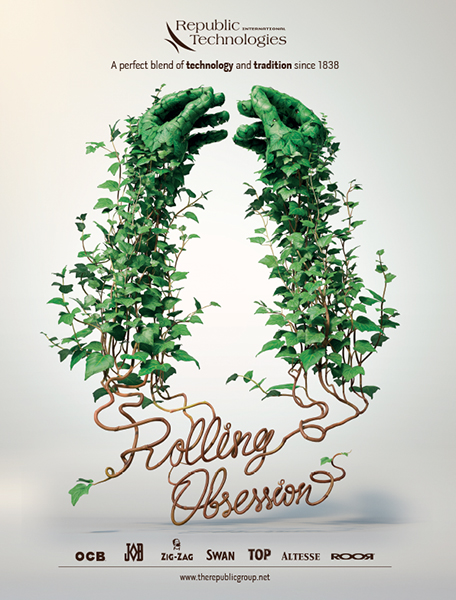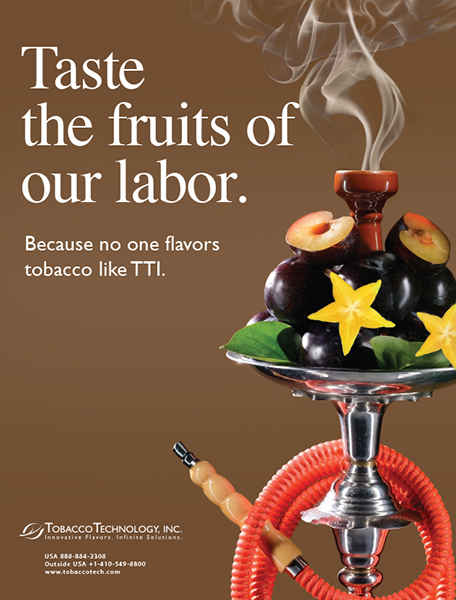Tyranny of the Majority
- Also in TR Other Tobacco Products Print Edition
- October 1, 2020
- 0
- 1
- 15 minutes read


The Covid-19 pandemic should not be used as an excuse to permanently restrict shisha lounges.
By George Gay
Since shortly after the start of this year, people around the world have been asked or required to change some of their habits to allow governments to implement strategies aimed at defeating Covid-19. Under these changes, people have been introducing certain hygiene regimes, staying at home except for essential outings, observing social distancing and wearing masks.
There is, in my book, nothing controversial in this. Democracy involves an unwritten agreement, part of which has it that citizens can expect their governments to protect them as long as those citizens are willing to fall in line with the reasonable requirements of their governments.
So far, so good. Of course, no system is perfect, and there are those who, brought up on a diet of neoliberal dog-eat-dog dogma, like to rail against any curtailments of their perceived rights while ignoring any social responsibilities they might have, even though, for many of them, the wearing of masks, for instance, would be aesthetically affirming. And there are those who, while believing that complying with such safety requirements is a good idea, believe it is a good idea only for others.
Such attitudes are not helpful. Since it is known that the coronavirus that causes Covid-19 is transmissible in a number of ways, including through human-to-human contact, it is necessary, in order to defeat the pandemic, for as many people as possible to follow the rules set out by responsible governments. But such unity is undermined by people who believe they can be free agents while enjoying the advantages of a rules-based society. And it is undermined by governments when rules are not applied fairly, which usually means, in part, universally.
Touching lips
According to a story in the Hindustan Times, on Aug. 3, India’s national government banned with immediate effect the use of hookahs in public places, purportedly as part of its strategy for defeating Covid-19. But I cannot help feeling there is more to this ban than its use in the fight against Covid-19.
There has to be. The Hindustan Times reported that, in announcing the ban, the principal health secretary Vikram Dev Dutt had cited four reasons why the use of hookahs increased the transmission of Covid-19, but these reasons don’t stand up to scrutiny. The first reason was said to be that smokers were likely to touch their lips more often [presumably than were nonsmokers]. No evidence was given in the newspaper piece for this statement and, from my further reading, this seems to be an idea put forward in respect of cigarette smokers, which would at least align with common sense, given the way that a lot of cigarette smokers hold their cigarettes. On the other hand, my observations of hookah smokers tell me that they tend not to touch their mouths with their fingers when they place a hookah mouthpiece between their lips. Indeed, an Internet picture I saw of four Palestinian men enjoying shisha in a lounge showed the shisha-pipe mouthpieces being held with hands at least 25 cm from their faces and passing through face masks, which would have made it impossible for the smokers to touch their lips. I would suggest that any division between people who touch their lips with their fingers a lot and those who don’t has to do with factors other than hookah smoking or not.
The second reason given was that smokers were likely already to have lung diseases or reduced lung capacity [compared with that of nonsmokers]. This might be true, if it applies to all smokers, not just hookah smokers. Again, there was no evidence given for this statement, and it wasn’t mentioned that while some people claim that tobacco smoking leads to worse outcomes if a smoker contracts Covid-19, others claim that smoking can protect against contracting the disease. I hasten to add that, to the best of my knowledge, neither of these claims has been corroborated.
The third reason was that smoking hookahs involved sharing mouthpieces. This is simply wrong. It might be that some people share mouthpieces, but others don’t, as was the case with the four Palestinian men described above, who were each using not only separate mouthpieces but separate pipes. Sharing mouthpieces or pipes is not a condition of smoking hookahs.
The fourth reason was that conditions likely to increase oxygen needs or reduce the ability of the body to use oxygen properly would put Covid-19 “patients” at a higher risk of developing complications. This might be true, but it concerns the outcomes of individuals who have caught the disease, not the transmission of Covid-19, which is purportedly what the ban was put in place to reduce. And, in any case, if it is true it applies to all smokers, not just hookah smokers.
Terrible irony
Indeed, it would apply much wider still. There is a terrible irony in the government’s having raised the issue of “conditions likely to increase oxygen needs or reduce the ability of the body to use oxygen properly.” The Indian national government sits in Delhi, which, according to a Wikipedia entry quoting a World Health Organization survey of 1,650 cities worldwide, has the worst air quality of any major city in the world. “On 25 Nov. 2019, the Supreme Court of India made statements on the pollution in Delhi, saying, “Delhi has become worse than narak (hell),” according to Wikipedia. “Supreme Court Justice Arun Mishra said that it is better to get explosives and kill everyone.” Quite.
Looked at through the lens of the health secretary’s four reasons, it seems laughable to imagine that a ban on smoking hookahs in public places is going to have more than a snowball’s chance in narak of slowing the tide of Covid-19. But that is not to say that such a ban is not useful. It probably is, but the real reason why it is useful is that, along with similar measures applied to other public venues, it helps prevent people congregating for nonessential reasons. Going back to the four Palestinian men, only one seemed as though he might be socially distanced.
It was and is perfectly logical for shisha lounges to be shut during lockdowns that have seen the closing of other public venues, including bars, restaurants and places of entertainment. And a quick check of the internet soon reveals that closures have occurred in many countries, including those where shisha use is traditional.
But, by the same token, it is perfectly logical for shisha bars to reopen after lockdown rules on these sorts of venues are relaxed and once general and specific regimes for keeping customers as safe as possible have been put in place. One London council has asked shisha venue owners to limit the number of customers allowed into their lounges and ensure social distancing; to ensure customers wash their hands before and after smoking; to thoroughly sterilize pipes after use; to use disposable mouthpieces; and to ban the sharing of pipes.
None of these requests is particularly onerous, and while limiting the number of customers might have implications for a business’ viability, this is an issue that all public venues are having to face as part of the trade-off between protecting health and reopening the economy.
What should not happen, however, is temporary and justifiable bans on the opening of shisha lounges be extended unjustifiably in relation to what is happening with other comparable venues, or even turned into permanent bans. And this is happening, or at least being suggested, in some countries led by people with what I would describe as highly focused puritanical attitudes—in countries where political opponents can be made to disappear, but heaven forbid they should be allowed to harm themselves by smoking.
And this sort of unjustifiable ban can be rendered “justifiable” in the eyes of many people by conducting polls. An Arab News Twitter poll of 1,500 people apparently found that 82 percent of people favored maintaining bans on the opening of shisha lounges even after lockdowns were otherwise lifted. But acting on the evidence of such polls is clearly unfair given that shisha smoking is a minority activity that has been given pariah status by authorities around the world but not banned. Such polls are like asking whether the authorities should ban the public playing of bagpipes—another activity defined by hoses and mouthpieces—in England, where I assume 99 percent of people not hearing-impaired would, somewhat selfishly, vote yes to a ban. Polls should not be used to enforce the tyranny of the majority.
Case study

In August, Tobacco Reporter asked Faizan Aatif, who, with partner Mohammed Sheikh, runs Afzal Shisha UK, about some of the shisha business challenges and responses that had been elicited by the Covid-19 crisis. Aatif, whose business supplies a novel shisha tobacco product to individuals and businesses and was the subject of a recent feature story in Tobacco Reporter, is closely associated with the world of shisha lounges.
Tobacco Reporter: Is it correct to say that shisha bars in the U.K. have been shut since the lockdown closed other venues, such as restaurants and pubs?
Faizan Aatif: Yes, indeed, all shisha lounges in the U.K. were forced to close along with restaurants and pubs in March.
Are these shisha bars now opening with new hygiene rules in place?
Yes, the majority of shisha lounges have now reopened but with reduced capacity and precautions as per government guidelines.
What sorts of rules are being introduced?
Mainly, those to do with social distancing between tables, the wearing of masks by staff, bans on the sharing of pipes, the use of disposable hoses and the introduction of hand-sanitizing stations. Some businesses even check the temperature of patrons prior to allowing entry to the premises.
Are these initiatives consistent across the country, or do they vary venue to venue?
As you would expect, some venues are better than others, but generally they are consistent in following guidelines.
Do you think shisha bars can be viable with these new rules in place?
For the time being, especially after such a prolonged lockdown, people are just thankful to have a venue so they can get out and socialize with friends. Many are nondrinkers, so the shisha lounge is their bar and club. The shisha is pretty secondary! All shisha lounges we deal with have been extremely busy ever since they reopened, so hopefully if there is not a significant second wave of infection and another lockdown, things will return to normal soon.
How has the lockdown affected your shisha business? Have you seen increased sales to individuals?
With lounges being forced to close, we were really worried as our trade sales dropped to zero literally overnight. However, we formed a strategy to focus on small retail packs, and that was very successful and kept us ticking over. A massive proportion of previously lounge-only smokers began purchasing shisha apparatus and shisha tobacco to smoke at home, and we spent a lot of time on social media giving advice to new home smokers to help them improve their sessions and troubleshoot any issues they were experiencing. We also ran some discount promotions and competitions for end customers, and those campaigns proved very successful.
Is there anything else significantly impacting the shisha business in the U.K. right now?
Our biggest problem in the U.K. shisha industry is the number of illegal black market “brands” emerging on the market, enticing lounges and retail customers with cheap, tax-free pricing. Many of these products are entirely unregulated and mixed up in underground factories, so there is a very real increased public health risk. We need greater policing of our segment of the tobacco industry by the authorities as it’s hitting the few official U.K. importers such as ourselves very hard. If the legitimate brands decide it’s no longer in their interests to pursue the U.K. as a viable market, then the entire industry will be driven underground and will be in the hands of criminals. —G.G.





